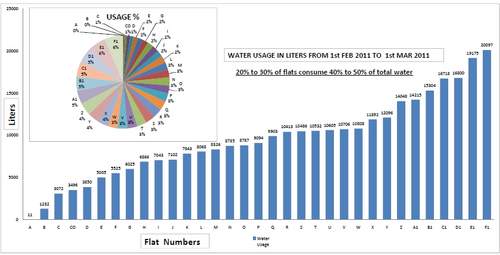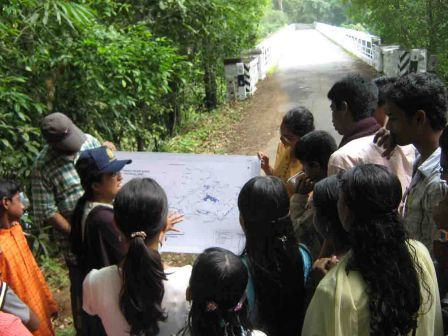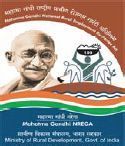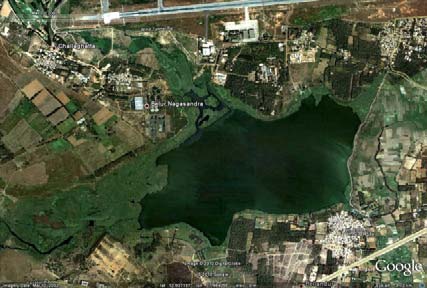News and Articles
Review of Krishna Water Disputes Tribunal - A report on Krishna river water allocations
Posted on 08 Mar, 2011 04:42 PMThis is a review of KWDT-2 report analysing how it has failed to protect the long term sustainable productivity and ecology of the river basin. It has also failed to understand the water allocations done by previous KWDT-1. KWDT-2 also negated the earlier KWDT-1 allocations at the same time categorically stating that it cannot change water use allocations of previous award.
Domestic water usage analysis for a 32 flat apartment in Bangalore - Kannan Venkitachalam
Posted on 08 Mar, 2011 10:10 AM

Initially used to buy 3-4 tankers per day with limited supply of water like in morning 1.5hrs., Noon 1 hr & Night 1.5hrs for the last 11 to 12 months. Now we have 24 hrs water and buying only 2 tankers per day.
Present status of interlinking of rivers project - Press Information Bureau release
Posted on 04 Mar, 2011 02:09 PMThe Government has said that the National Water Development Agency (NWDA) under the Ministry of Water Resources (MoWR) has identified 30 inter-state River links (16 under Peninsular Component & 14 under Himalayan Component) for preparation of Feasibility Reports (FRs). Out of these, FRs of 14 links under Peninsular Component and 2 links (Indian Portion) under Himalayan Component have been completed. Giving this information in written reply to a question in the Lok Sabha, present status of interlinking of rivers in the country, Shri Vincent H. Pala, Minister of State for Water Resources, said that the Five inter-state River links under Peninsular Component namely (i) Ken-Betwa, (ii) Parbati-Kalisindh-Chambal, (iii) Damanganga-Pinjal, (iv) Par-Tapi-Narmada & (v) Godavari (Polavaram)-Krishna (Vijayawada) were identified as priority links for building consensus among the concerned states for taking up their Detailed Project Reports (DPRs).
River schools can make the future look bright - Parineeta Dandekar
Posted on 04 Mar, 2011 01:25 PM Above - Children studying a map of the Chalakudy Basin. Photo - RRC.
Above - Children studying a map of the Chalakudy Basin. Photo - RRC.
Seeds of sustainability and sensitivity when sown at a young age, blossom into responsible individuals. And you need to be in touch with the land to sow those seeds. The Central and State Boards of Education in India have made Environmental Science a compulsory subject for schools and junior colleges (for all subjects). But Environmental Sciences is not to be studied in the classroom. In order to understand the erosion and deposition processes of a river, students need to visit a river bend in their city and in order to instil a lifelong aversion to plastic bags, a landfill and dumping grounds need to be seen.
"Civil society groups to do NREGA audit again"
Posted on 04 Mar, 2011 11:56 AM

Main highlights in this update:
Landmark initiative of Karnataka High Court stops the destruction and degeneration of lakes of Bangalore - ESG press release
Posted on 04 Mar, 2011 09:02 AMIn a landmark ruling today, the Hon’ble High Court of Karnataka accepted the report of a committee it constituted to examine the ground realities and prepare an action plan for the preservation of lakes in the city of Bangalore. This report was sought by an interim direction of Chief Justice Mr. J. S. Khehar and Justice A. S.
Lakes of Mahadevpura constituency of Bengaluru: Current status, changes in distribution and recommendations for restoration - A report by ATREE (2011)
Posted on 02 Mar, 2011 09:18 AM The lakes are now faced with the impacts of rapid urbanization and the Bruhat Bengaluru Mahanagara Palike (BBMP) has been consolidating management of the majority of the city’s lakes under its control in the recent years. The survey dealt with 35 lakes in 10 sub chains in Mahadevpura. The report describes current status, studies changes in extent, and suggests steps for reclamation and conservation.
The lakes are now faced with the impacts of rapid urbanization and the Bruhat Bengaluru Mahanagara Palike (BBMP) has been consolidating management of the majority of the city’s lakes under its control in the recent years. The survey dealt with 35 lakes in 10 sub chains in Mahadevpura. The report describes current status, studies changes in extent, and suggests steps for reclamation and conservation.
Socio-economic implications of depleting groundwater resource in Punjab: A comparative analysis of different irrigation systems - An EPW paper
Posted on 01 Mar, 2011 06:00 PMIt argues that while the consequences of negative groundwater draft have mostly been viewed as an ecological disaster, the externalities of groundwater depletion pose greater concern for socio-economic equity in the access to this resource.